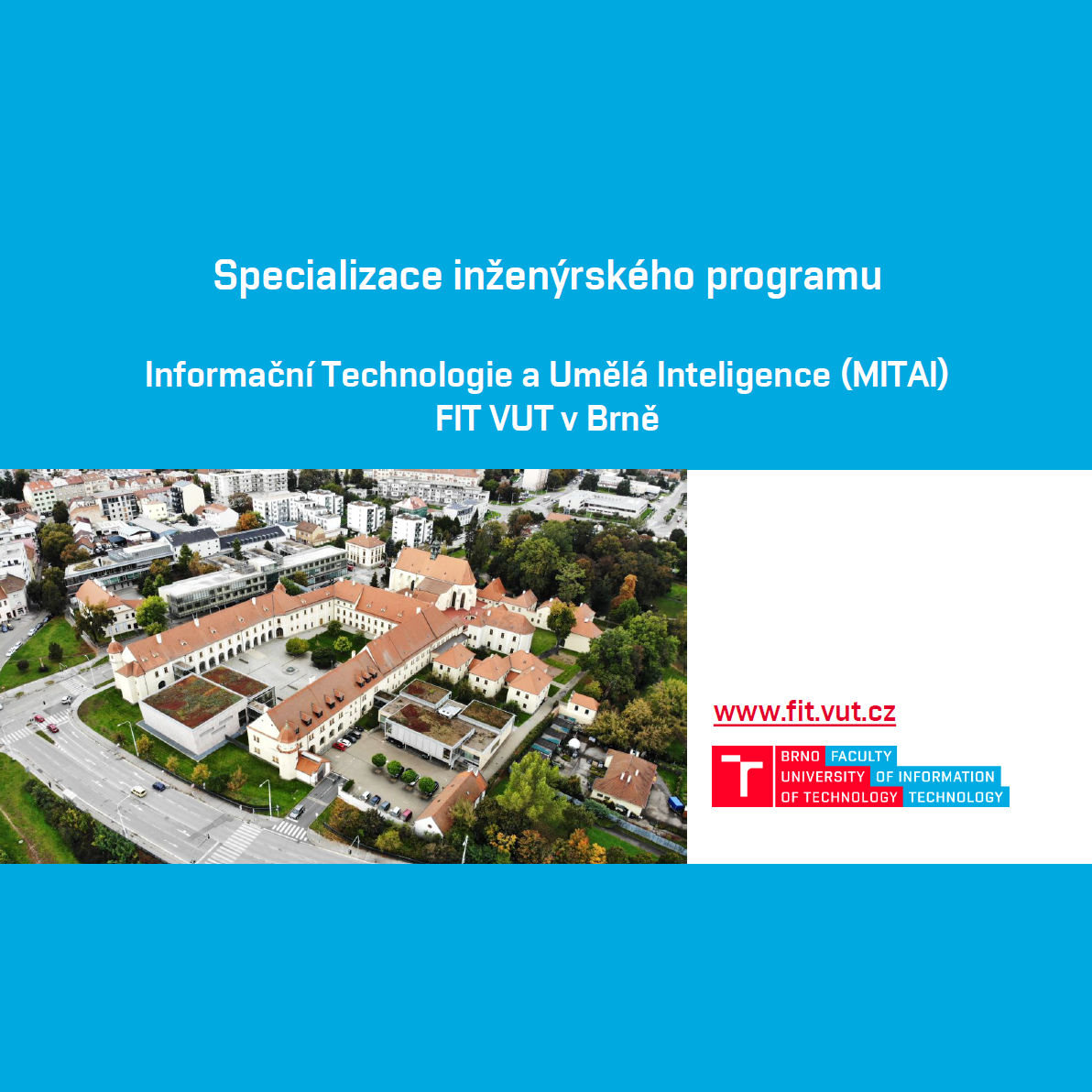Application Development
Acad. Year 2022/2023Full-Time Study2 Years Title Awarded Ing.
The branch is focused to the IT applications not only from the software area but hardware one as well. The graduate of this branch could be able not only to design microprocessor (IoT) applications with the aid of hardware/software co-design but also data sophisticated and mobile information systems applications. Beside of this the branch deals with computational difficult applications from the area of artificial intelligence.
1st Year
The common basis of the programme
The common core of the program consists of courses that will give you the knowledge important for all IT engineers:
- Computation Systems Architectures will teach you how to think about how your code will run on modern computing platforms, how to think about programming in a way that makes the most efficient use of resources, i.e., that your application makes the best use of the power of modern platforms, makes efficient use of system memory resources, and is also efficient in terms of energy consumed.
- Functional and Logic Programming will teach you that although classical imperative programming is a very widely used paradigm and is very close to machine-level implementation, there are other approaches that will give you a new perspective on some key problems and help you get novel and often more efficient solutions to them.
- Modern Trends in Informatics (in English) you need to know to see where the field is going and what to expect in practice in a few years.
- Parallel and Distributed Algorithms is a course that will show you the patterns, limits, and pitfalls of parallel and distributed algorithmic solutions and the associated synchronization mechanisms, without which you will hardly succeed in solving many of the more complex problems.
- Statistics and probability is the right hand of every engineer to process numerical results of experiments or data obtained while running your application, analyze them and learn from them to make further decisions is almost his daily bread.
- Theoretical Computer Science shows the limits of computer science capabilities through formal languages and mathematical models of computation. This is the only way to understand whether your problem is even solvable and, if so, with what resources and means to prove it.
- Data Storage and Preparation, especially big data, and extracting knowledge from it is a valuable art to any computer scientist. It is a key aspect that strongly influences the effectiveness of many solutions and applications.
- Artificial Intelligence and Machine Learning is a course where you will learn how to teach computers to understand our world and make them solve problems that are easy for humans but difficult for an algorithmic machine to handle.
They will pass on all their knowledge and hold you in difficult moments
Prof. Ing.
Hruška Tomáš
CSc.
Doc. Ing.
Zbořil František
Ph.D.
His research is focused on implementation and development of intelligent distributed and multiagent systems. He made some systems that combines multiagent paradigmas with PetriNets and he also did some research in application of agent programming in wireless sensor networks. Recently he also works on models for genealogy and social structures.
What are we talking about?
-
(PR, Brno, April 8) The Faculty of Information Technology at Brno University of Technology (FIT BUT) hosted the international conference DFRWS EU 2025. It was the first time that this longest-running event in the field of global digital forensic research took place in the Czech Republic. …
-
She was discouraged from studying computer science, but today she is gaining success in the field of quantum circuit simulation
First place in the 8 z VUT competition, inclusion of the bachelor thesis in the programme of a prestigious international informatics conference. These are just some of the successes celebrated by Sára Jobranová, a student of the Master's programme Information Technology and Artificial Intelligence at the Faculty of Information Technology BUT. …
Come to FIT!
Other Master
Specializations
-
Application Development
-
Bioinformatics and Biocomputing
-
Computer Graphics and Interaction
-
Computer Networks
-
Computer Vision
-
Cyberphysical Systems
-
Cybersecurity
-
Embedded Systems
-
High Performance Computing
-
Information Systems and Databases
-
Intelligent Devices
-
Intelligent Systems
-
Machine Learning
-
Mathematical Methods
-
Software Engineering
-
Software Verification and Testing
-
Sound, Speech and Natural Language Processing
